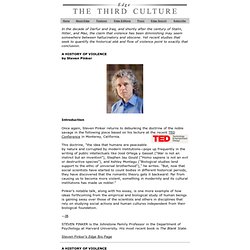

Momentum Is Building to End the Failed Drug War: Top Stories of 2010. December 22, 2010 | Like this article?

Join our email list: Stay up to date with the latest headlines via email. It's been a difficult year for progressives, and most other Americans as well. While I feel discouraged about many things happening in our country and around the world, and have lost lots of my "Yes We Can" glow from only two years ago, the issue that is closest to my heart -- ending the war on people who use drugs -- continues to bring me hope and cautious optimism. The debate around failed marijuana prohibition and the larger drug war arrived in a big way in 2010. 1) California's Vote on Legalizing Marijuana Inspires Worldwide Debate Proposition 19, the initiative to control and tax marijuana in California, was arguably the highest profile voter initiative in the nation. 2) President Obama Signed Historic Legislation Reducing Crack/Powder Cocaine Sentencing Disparity 3) Media Coverage is Fair, Balanced and Thoughtful. Why Listening to Music Makes You Smarter.
December 21, 2010 | Like this article?

Join our email list: Stay up to date with the latest headlines via email. In past generations, singing and playing instruments was an integral part of family life. A great way to express and entertain yourself and others. Humans are "wired" for music. Norman Doidge, in his book, The Brain That Changes Itself, shares case after case of people forcing their brain to change and adapt either voluntarily with discipline, or involuntarily due to odd incidences. Daniel Levitin passionately explores the connection between Music and the Brain in his book of the same name. But even if you are still skeptical about music making kids smarter, let's look at the other benefits.
There are many benefits of being involved in making music, but the neural pathways drives home the point and gets our attention. Collapse, stagnation, and explosion – Myspace, Yahoo!, and, Facebook. Open Thread – December 4th, 2010. Long-term-historical-trends-of-violent-crime.pdf (application/pdf Object) A HISTORY OF VIOLENCE By Steven Pinker. In sixteenth-century Paris, a popular form of entertainment was cat-burning, in which a cat was hoisted in a sling on a stage and slowly lowered into a fire.

According to historian Norman Davies, "[T]he spectators, including kings and queens, shrieked with laughter as the animals, howling with pain, were singed, roasted, and finally carbonized. " Today, such sadism would be unthinkable in most of the world. This change in sensibilities is just one example of perhaps the most important and most underappreciated trend in the human saga: Violence has been in decline over long stretches of history, and today we are probably living in the most peaceful moment of our species' time on earth. In the decade of Darfur and Iraq, and shortly after the century of Stalin, Hitler, and Mao, the claim that violence has been diminishing may seem somewhere between hallucinatory and obscene. Yet recent studies that seek to quantify the historical ebb and flow of violence point to exactly that conclusion. Scholars and Rogues » What would a progressive society look like? The Tricentennial Manifesto.
One of my lists is currently engaged in a fairly dynamic discussion about “what is a progressive?”

In thinking about the issue, I realized that it might help to ask the question a slightly different way: what would a progressive society look like? Maybe I can better understand what it means to be progressive in 2010 if I reverse-engineer the definition from a vision of the future where things work the way they ought to. I have argued that the success of the progressive movement hinges on seriously long-term thinking. It’s not about the 2012 elections or the 2016 elections or even the 2020 elections – those fights are about the battle, not the war. Instead, if we do things properly, if we concentrate on and win the war, what does America look like on our Tricentennial?
The Tricentennial Manifesto, v1.0 In 2076, every citizen should be educated to his or her highest potential. Feel free to suggest additions or amendments. Cat White and Mike Sheehan contributed to this document. The Web Means the End of Forgetting.